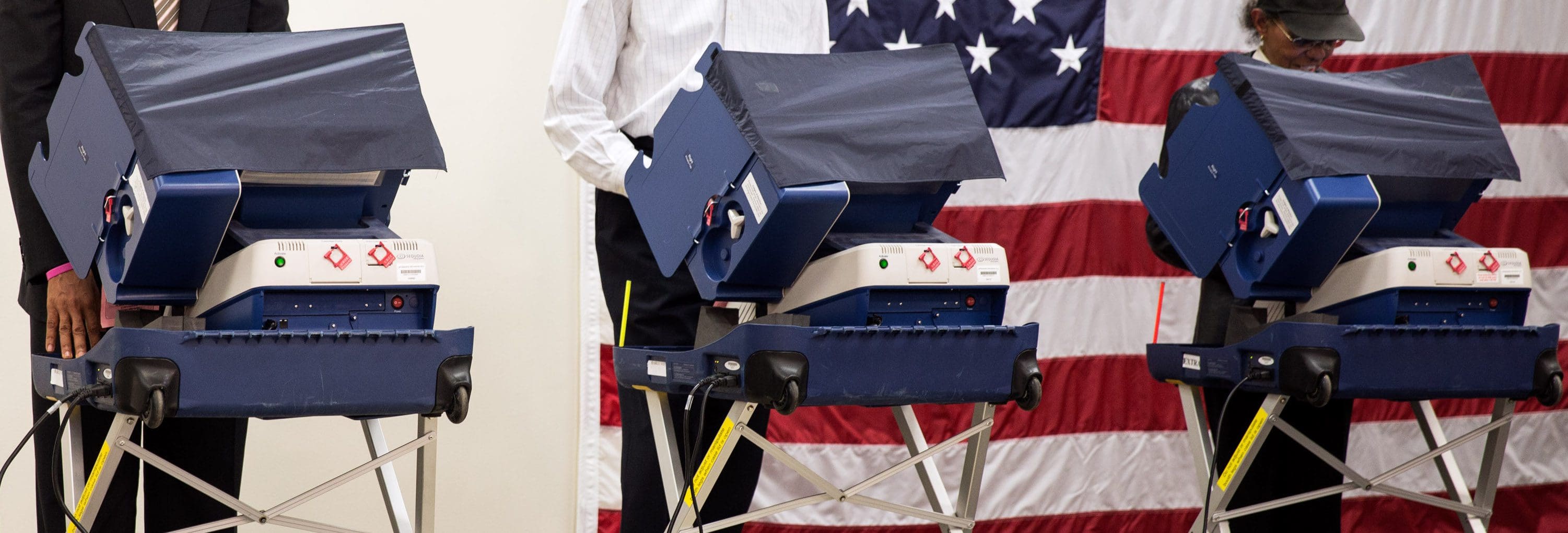On behalf of the Harris County Republican Party (HCRP), we take issue with Daniel Greer’s recent account of how the Texas House Committee on Elections handled Senate Bill 9 in the 86th Legislative Session—a bill that would have mandated paper ballots in all Texas elections.
We agree that Texas faces extensive potential wrongdoing that can undermine the integrity of our elections, which we actively work year-round to remedy in Harris County. But we believe Greer’s article targeting members of the House Committee on Elections—especially the committee chair, State Rep. Stephanie Klick (R–Fort Worth)—for “not taking election integrity seriously” is inaccurate and unfair.
We are conservatives who have been deeply involved with managing elections at all levels for many years, including poll watching, election judging, conducting recounts, reviewing mail ballots, ruling on provisional ballots, and more. We believe mandating paper ballots for all Texas counties endangers election integrity because:
- Paper ballots have been and can still be counterfeited.
- Paper ballots must be stored, subject to being lost or supplemented with “newly found” ballots, altering the outcome of any recount.
- Paper ballots can be marked on, rendered unreadable, or mutilated after the fact, facilitating fraud and election theft by those with access to the ballots.
- Making paper ballots the final authority for any vote count—as SB 9 would have done—would result in conflicts with electronic counts, possibly flipping election results.
- In large counties, paper ballots can only be counted via optical scanners, with known error rates of approximately 5-10 percent on average.
The HCRP Executive Committee thus unanimously opposed legislation mandating voting equipment with paper ballots for all Texas counties, as SB 9 would have done.
In contrast, none of these problems exist with direct-recording electronic (DRE) voting systems such as those currently used in Harris County and elsewhere, which are double-checked by all parties, never connected to the internet, and have triple redundancy. Recounts for elections with DRE machines require interpreting voter “intent” only for paper mail ballots. With mandated paper ballots, every vote will be subject to “interpretation.”
The heavily amended version of SB 9 sent to the House on April 29, 2019, was an omnibus bill, lengthy and far-reaching. Though the bill proposed many valuable improvements in Texas election law, we believe Section 5.02 of the bill was fatally flawed. Instead of proposing to continually upgrade the cyber security of the reliable, cost-effective, Texas-certified DRE voting systems, Section 5.02 proposed to force all of Texas back to paper ballots—the election medium with the worst track record for election fraud. The Senate bill would have left all of Texas dependent on a single vendor of voting equipment—the same vendor and equipment used by Broward County, Florida.
Calling the paper ballot mandate in SB 9 a paper “audit trail” overlooks its real effect. SB 9 mandated that in any recount, the paper ballot would be the “official record.” That would invite confusion and conflict, incentivizing alteration, loss, and distortion of paper ballots to achieve a result contrary to the actual vote.
Tellingly, the lead section of the so-called “SAFE Act” recently rammed through the U.S. House of Representatives by Democrats on a party-line vote would likewise mandate paper ballots as the “official record” of any election and the sole basis for any recount. That belies the notion that paper ballots are a positive step toward greater election integrity.
During this legislative session, HCRP offered revisions to SB 9 that would have preserved most of the election integrity improvements in the bill, but with Section 5.02 altered or removed. We shared our suggestions with legislators and their staffs. Our revisions were accepted by the House but rejected by the Senate.
As for the alleged delay of SB 9: We understand that Chair Klick went to work on the bill immediately after it was received in committee. Due to multiple drafting errors in the heavily amended Senate version, Legislative Council took two weeks to prepare the House committee substitute for a hearing. During that time, the Elections Committee did important due diligence, contacting affected county election authorities and taxing entities to learn that SB 9 would create a major unfunded mandate for many of them.
As soon as the committee substitute was delivered by Legislative Council, Klick moved the bill forward to a committee hearing. On May 15, it was the only bill heard in a public hearing that lasted until midnight. Klick declined to call a vote the next day because a key Republican vote was not available, and that would have killed the bill. On May 17, the committee substitute SB 9 was reported out of committee with a 5-4 party-line vote and sent to the Calendars Committee, where it died.
In conclusion, we believe that Mr. Greer’s article criticizing the House Committee on Elections does not accurately portray the significant efforts expended by our conservative Republican House members, specifically Chair Klick, who worked hard to improve the election security bill to protect all Texas voters. We look forward to continuing to work with our legislators to improve and ensure the fairness and integrity of Texas elections.
This is a commentary submitted and published with the authors’ permission. If you wish to submit a commentary to Texas Scorecard, please submit your article to submission@texasscorecard.com.





